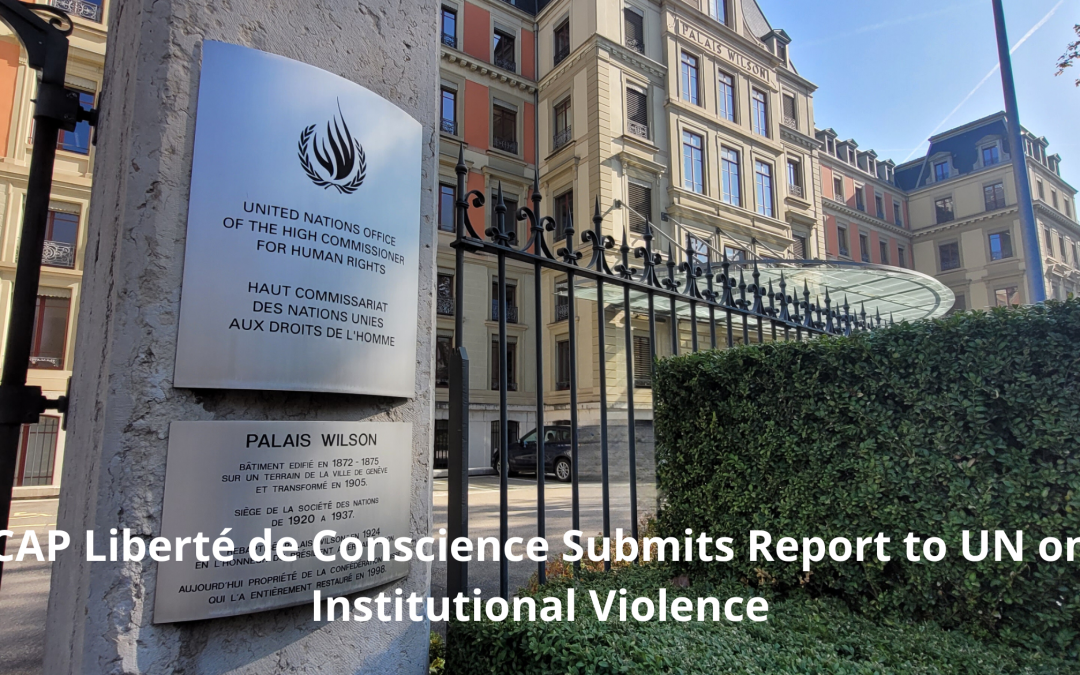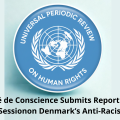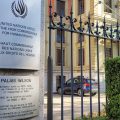The NGO CAP Liberté de Conscience has formally responded to the call for input issued by the Office of the UN High Commissioner for Human Rights (OHCHR) on the “Experiences and perspectives of victims and survivors of torture and other cruel, inhuman or degrading treatment or punishment”. The call, detailed here, seeks to gather information for a comprehensive report to be presented at the 61st session of the Human Rights Council in March 2026.
The submitted document, analyses systemic failures within French judicial and social welfare institutions that allegedly result in the revictimization of children and their protective mothers in cases of intra-family violence.
Objectives and Methodology of the Report
The primary objective of the report is to document and bring to international attention what it defines as institutional violence amounting to cruel, inhuman, or degrading treatment or punishment. The report aims to give a voice to survivors, illustrate the concrete impact of institutional failures, and advocate for urgent reform of judicial and social practices to ensure effective victim protection.
The methodological approach is based on the collection of direct testimonies from mothers, cross-referenced with existing judicial, medical, and social documents. The identities of the children and families have been partially anonymized. The report presents five detailed case studies (under the pseudonyms Estelle, Gabrielle, Séverine, Gwenaëlle, and Anne-Élodie), which it states are representative of a broader, systemic phenomenon observed across France.
Key Findings: Patterns of Systemic Institutional Failure
The analysis of the five cases identifies several recurring and alarming institutional patterns:
-
Suspicion Inversion and Criminalization of Protective Mothers: The report finds that protective mothers who report abuse on behalf of their children are systematically disqualified and accused of manipulation or “parental alienation,” a concept it notes is discredited by the international scientific community. The focus of suspicion shifts from the alleged perpetrator to the mother.
-
Discrediting the Child’s Testimony: The accounts of children, despite being corroborated by health and childcare professionals, are frequently dismissed or reinterpreted by authorities without a thorough investigation.
-
Maintenance of the Relationship with the Alleged Perpetrator: A consistent finding is the maintenance, and even extension, of the parental rights of the alleged aggressor, sometimes even after criminal convictions for related offenses (e.g., kidnapping in one case).
-
Coercive Interventions and Forced Placements: Interventions by child protection services (Aide Sociale à l’Enfance), including forced placements or removals from school, are described as traumatic experiences akin to “institutional kidnapping,” further traumatizing the children.
-
Lack of Specialized Care: The report highlights a severe lack of specialized therapeutic care for traumatized children, which aggravates their suffering and compromises their recovery.
-
Double Victimization: A central conclusion is that children experience double victimization: first by the abuser, and second by the institutions mandated to protect them, which re-expose them to danger and inflict additional trauma.
The report argues that these practices are not mere negligence but constitute active institutional revictimization. It concludes that through both omission (failure to protect) and commission (coercive measures), these state actions violate international obligations under the Convention against Torture (CAT), the Convention on the Rights of the Child (CRC), and the Convention on the Elimination of All Forms of Discrimination against Women (CEDAW).
Recommendations for Reform
To address these systemic issues, the report puts forward six key recommendations aimed at national and international stakeholders:
-
Formal Recognition: Recognize institutional revictimization as a form of violence that can amount to cruel, inhuman, or degrading treatment under international law.
-
Prohibition of “Parental Alienation”: Explicitly prohibit the use of the concept of “parental alienation” and similar notions in judicial proceedings, in line with scientific consensus and previous recommendations from international bodies.
-
Mandatory Training: Implement systematic training for judges, magistrates, social workers, and court-appointed experts on the dynamics of coercion, intra-family sexual violence, and institutional revictimization.
-
Immediate Child Protection: Guarantee immediate and effective protection for children disclosing violence, including the suspension of the parental rights of the alleged aggressor upon formal investigation (mise en examen).
-
Specialized Therapeutic Support: Ensure specialized therapeutic follow-up for every child exposed to violence, independent of justice and child protection services.
-
Independent International Appeal Mechanism: Create an independent international appeals mechanism allowing families whose rights have been stripped by local jurisdictions to challenge decisions contrary to the child’s best interests and obtain protection in cases of serious institutional failure.
Contributing Experts
The report was authored by Sarah Thierrée, a judicial expert at the International Criminal Court specializing in intra-family violence, with a PhD in Neuroscience and a former Professor of Clinical and Forensic Psychology; Johnny Dousse, a lawyer at the Bar of Neuchâtel.





